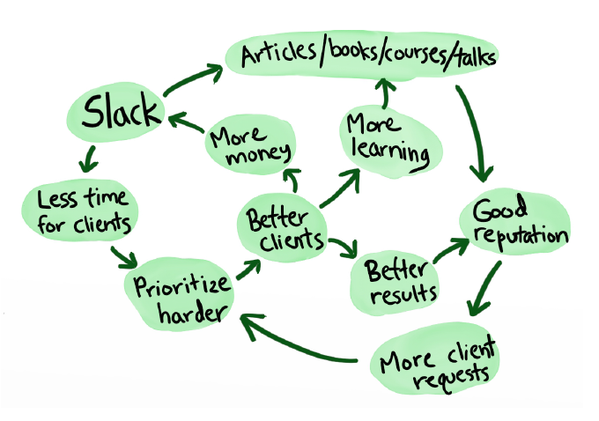Difference between revisions of "Slack speeds up"
(+= Seth’s Blog » Seth Goding » Problems) |
(→Sources: +=. *https://jessitron.com/2023/01/16/resilience-and-waste-in-software-teams/) |
||
| Line 22: | Line 22: | ||
==Sources== | ==Sources== | ||
*http://www.slideshare.net/pawelbrodzinski/efficient-or-just-busy | *http://www.slideshare.net/pawelbrodzinski/efficient-or-just-busy | ||
*https://jessitron.com/2023/01/16/resilience-and-waste-in-software-teams/ | |||
{{WebSourceListItem | {{WebSourceListItem | ||
|url=http://sethgodin.typepad.com/seths_blog/2016/05/problems.html | |url=http://sethgodin.typepad.com/seths_blog/2016/05/problems.html | ||
Latest revision as of 19:18, 17 January 2023
…an organization with a lot of work.
✣ ✣ ✣
getting more done in less time
Seth Godin says: Avoiding a problem with foresight and good design is a cheap, highly leveraged way to do your work.
Extinguishing a problem before it gets expensive and difficult is almost as good, and far better than paying a premium when there's an emergency.
Fretting about an impending problem, worrying about it, imagining the implications of it... all of this is worthless.
The magic of slack (a little extra time in the chain, a few extra dollars in the bank) is that it gives you the resources to stop and avoid a problem or fix it when it's small. The over-optimized organization misunderstands the value of slack, so it always waits until something is a screaming emergency, because it doesn't think it has a moment to spare. Expensive.
Action is almost always cheaper now than it is later.
Therefore:
secure slack time in your system
✣ ✣ ✣
✣ ✣ ✣
